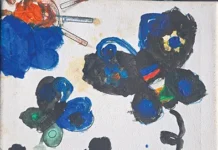Information for dog owners
[ Raseng Yao ]
Canine parvovirus is a highly contagious viral disease characterized by diarrhoea that is often bloody with peculiar odour. Majority of cases of disease are seen in dogs less than 6 months of age with most severe cases seen in puppies younger than 12 weeks.
It mainly affects unvaccinated puppies between 6 and 20 weeks old. However, canine parvovirus may also affect adult dogs that have not received their parvo vaccine or missed a booster dose. Canine parvovirus is highly contagious that means if one puppy is infected with canine parvo in a multi-dog household, other unvaccinated puppies and dogs are also at risk.
Canine parvovirus or canine parvo is a result of the Canine parvovirus type 2(CPV) infection. Every unvaccinated dog, irrespective of their breed, is capable of becoming infected by parvo. The outbreaks are still quite common. The lack of options to get puppies vaccinated and dog booster during the COVID-19 pandemic caused a sudden spike in parvo cases across the globe.
The outbreaks are common and keep occurring throughout the year. So, vaccinating your dog or puppy against canine parvovirus is a must. If your pup’s vaccines are not up-to-date, visit the veterinary pet hospital near you and ask about puppy vaccination schedules.
Canine parvovirus can spread via – direct dog to dog contact, dog’s contact with contaminated stool, contaminated surfaces that contain the viruses, people who have come in touch with infected dogs, contaminated food and water bowls, infected leashes, collars and other accessories.
Thankfully, it is not an airborne virus. You have to clean the floor, furniture, furnishing, clothes and your dog’s accessories thoroughly if they have tested positive for canine parvovirus. Cuddling and or handling other dogs, after touching a CPV-positive dog can cause further spread of the disease.
If you believe your dog or pup has been exposed to CPV, visit the nearest veterinary pet hospital and request a parvo test. All emergency vet hospitals have parvo testing kits and other tests that can detect Canine parvovirus.
Canine parvo symptoms are easy to observe in puppies as well as adult dogs. The parvo symptoms include- lethargy, depression, loss of appetite, nausea, vomiting, diarrhoea and blood in stool. Fever is not a common symptom among all parvo cases. Some dogs come down with a sudden high fever after contracting parvo.
In case your pup is showing more than one of these symptoms, rush them to the veterinary emergency dog hospital near you for immediate treatment. Quick action can stop the spread of the disease.
Canine parvo can be deadly if proper treatment is not provided at the right time. There is currently no antiviral therapy that works for every dog suffering from parvo. So, parvo treatment mostly consists of supportive care, symptomatic treatment, and management of overall health. One of the biggest challenges posed by parvo is dehydration. The first line of treatment always includes minimizing the fluid loss and rehydrating the pup. All oral drinks and foods are stopped during treatment. So, all the fluids are given intravenously or subcutaneously, depending upon the age of the puppy. They will also require antibiotics to minimize the chance of secondary bacterial infection. They will need to be isolated and kept under constant observation. In patient care with an isolation treatment area is the ideal choice for new pet parents.
Prevention of canine parvo is much easier and more economical than treating the disease. It can be prevented by vaccinating the animals. But the awareness regarding parvo is very low in our own locality .The vaccine is available as a combined vaccine .The vaccination schedule is as follows:-
| Initial Dose | Booster Dose | Revaccination |
| 6-8 weeks | Every 3-4 weeks till 16 weeks | Every 1-3 years |
Here are few tips to protect your puppy from canine parvo-
# The only way to ensure that your puppy does not contract CPV is by following the standard vaccination protocol.
# Do not forget to give yearly boosters to your dog to protect them from Canine parvovirus infection
# Do not take puppies younger than 120 days, who have not received their puppy DP, DHPPiL vaccine and booster outside.
# Do not let strangers cuddle your unvaccinated puppy.
Do not leave your puppy in any in-patient care where they do not isolate suspected Canine parvo infections.
Vaccinate dogs and save life!!
(The contributor is a 3rd year student of College of Veterinary Science and Animal Husbandry Selesih, Aizawl, Mizoram)



